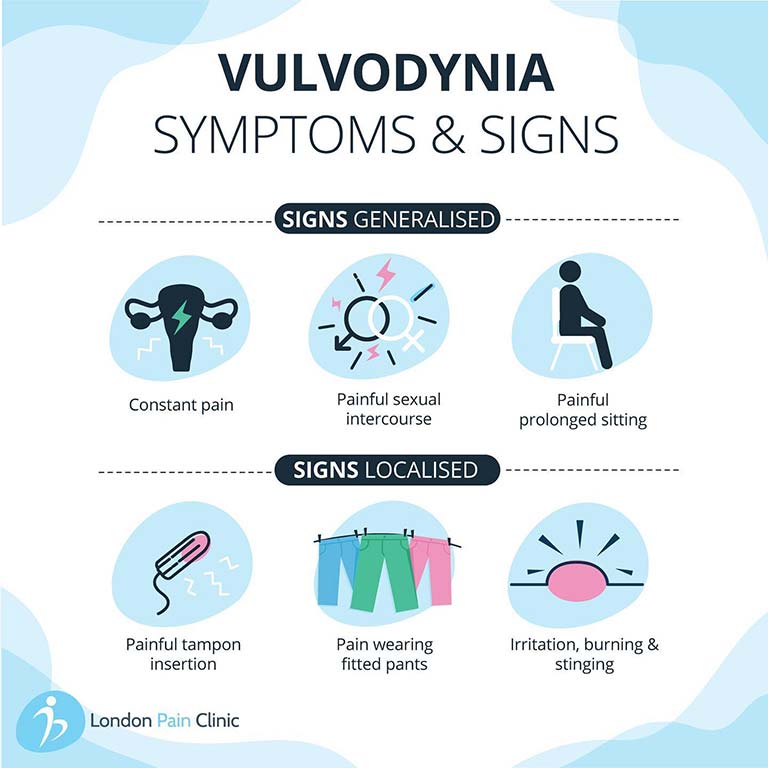Why Does My Vagina Hurt? Common Causes of Vagina Pain

“Vaginal pain may be confined to your vaginal area, or it may radiate down from your pelvis or cervix” [1]
Having an uncomfortable or painful vagina (VAG) can affect women at their very core. And as many women are aware, the vagina (the passage which runs between the cervix and the vulva), can easily be affected by medical or psychological issues [1]. But the good news is that these days, there is a plethora of treatments available.
These may include: holistic treatments, specialist physiotherapy, electro therapy such as TENS; pharmaceuticals, topical ointments to ameliorate persistent pain or discomfort during intercourse; and nerve blocks or anaesthetic injections to help numb the area in your VAG. Further, in some cases, surgery may be necessary to treat vulvar vestibulitis or vulvodynia. So consulting an experienced Pain Specialist as soon as possible, is the best course of action. He/she is likely to take a multi-treatment approach, according to your personal needs.
What’s Causing My Vaginal Pain?
Infection is the number one cause of VAG pain, and can include conditions such as: chlamydia, gonorrhoea, and yeast infection. Other possible reasons include:
- Vulvar vestibulitis
- Trauma due to surgery (or other medical procedures); childbirth, or sex
- Vulvovaginal atrophy owing to decreased oestrogen after menopause
- Cancer of the cervix
- Psychological reasons, including past sexual abuse
- Lack of lubrication
- Painful sexual intercourse (dyspareunia). This can be due to reduced sexual arousal, hormonal changes (menopause alters hormone levels and the vaginal tissue becomes thinner, thus impacting natural vaginal lubrication, and contributing to vaginal pain) [1].
Am I at Risk of Getting Vaginal Pain?
Unfortunately, VAG pain can affect women of all ages. And in some cases your medical history can elevate your risk. – For instance, menopause or pregnancy can bring about changes in hormone levels; and hysterectomy can elevate the risk of VAG pain. Further, you are also at higher risk if you have suffered breast cancer. Various medications (such as statins, which are prescribed to lower cholesterol levels), can also elevate the possibility of vaginal pain [1].
So What Are VAG Discomfort & Pain Symptoms?
These symptoms vary according to the root cause. For instance, you may be suffering from vulvodynia, a very unwelcome condition which generates perpetual long-term pain; or vestibulitis of the vulvar, a condition which causes pain as soon as some type of pressure is applied to your vagina [1].
Do you experience one or more of the following symptoms that are linked to vaginal pain?:
- Pain while having intercourse
- Rawness
- Throbbing
- Stinging
- Soreness
- Itching
- Burning [1].
If your answer is “yes,” then book an appointment with a Pain Specialist right away.
Note: if you VAG pain is due to a bacterial or yeast infection, then you may have an abnormal vaginal discharge which smells or looks different to usual. If this is the case, then book an appointment to see your general medical practitioner [1].
Reference
[1]. Nall, R (2019). “What You Need to Know About Vaginal Pain.” Healthline.
